Performance, Play & Design
KEY PHASES OF MENTORSHIP IMPLEMENTATION
June 2023
Phase one (Spring 2023): CONSULTATION with faculty at all levels (early-career, mid-career, late career) in order to generate pairings that will build programs that are aligned with all ranks and thus likely to be sustained over time. The Departmental Chair will be responsible for suggesting initial pairings. The scope of these programs will be to provide both career advancement and personal support. Career advancement supports includes the development of particular sets of skills which are to be enhanced in one-on-one meetings:
• Individual scholarly/artistic research advising
• Grant writing (including how to look for internal funding opportunities)
• Teaching and classroom management. Mentors should also provide in-person teaching reviews for personnel actions.
• Understanding promotion process (University-wide and departmental)
• Clarifying expectations for promotion in PPD (see below)
• Granting access to important professional networks
• Providing helpful information about navigating work/life balances
Because these pairings have been shown to be more successful over the long term when there is choice involved, we will support faculty choice in these pairings. However, since we are also mindful that women and underrepresented groups are less likely to develop successful relationships when this is the sole method of pairing, the Chair will take pains to ensure that every early- and mid-career member of the faculty has access to excellent senior faculty mentors.
Also during this phase, we will make available specific University-wide resources to all demographic groups of pre-tenured faculty (especially women, minoritized groups, faculty with disabilities, and queer faculty).
Phase two (Fall 2023): CLARIFICATION of expectations about time commitment and efforts on the part of both the mentor and the mentee in the formal one-on-one relationship, and making sure that one-on-one mentorship duties are equitably assigned among senior faculty. Of particular concern is establishing the frequency of the meetings, which should be at least once per quarter plus an annual review. Also during this phase, we will establish checklists for mentors and mentees to guide mentoring conversations and to enumerate responsibilities of both mentors and mentees. These checklists will later be evaluated by the Chair to ensure that the mentoring relationships are fruitful and effective.
Mentor responsibilities in each meeting include:
• Assessment of mentee’s individual development in research, teaching, and service
• Heightened awareness of service burden on mentee, particularly concerning special challenges faced by women and minoritized groups. The mentor is called upon to make the mentee’s invisible labor visible to the Chair and the department.
• Making a reasonable plan for achievement of goals for next meeting
• Advocating to Chair on behalf of mentee based on these goals
• Keep a record of the meeting (see Agreement checklist below)
*Mentor’s responsibilities include reviewing the Mentee’s personnel file for completion before it is sent to the Department.
Mentee responsibilities include:
• Creating a meeting agenda with specific items of discussion
• Collaboratively developing appropriate goals
• Creating the hard work and integrity necessary for academic independence
• Keep a record of the meeting (see Agreement checklist below)
PHASE THREE (Fall 2023): AFFINITY GROUPS (PEER-TO-PEER). In this phase the Department encourages and supports the development of groups of faculty organized by research area and/or demographic affinities, to provide peer-to-peer mentoring that deepens understandings of area-specific skill development and professional networking opportunities, and shares concerns about the mentoring process and information critical to advancement. These meetings will also be encouraged to invite scholars and artists external to the department as potential mentors. The Department during this phase will continue to make resources available as appropriate, including holding special meetings to discuss any changes in the advancement process.
PHASE FOUR (Winter 2024): OVERSIGHT. Once the programs are up and running, and we have a sense of the general time commitment, we will incentivize mentorship by making it a review criterion for departmental personnel actions. This review will be partially based on the Chair’s assessment of the mentoring relationship. It is the Chair’s responsibility to ensure that mentoring is happening, and that mentees are satisfied with the quality and quantity of the mentoring sessions (see Agreement checklist below). The Chair is responsible for providing additional resources and tools for success in mentoring.
PHASE FIVE (Winter 2024): UNPAIRING. If the mentoring relationship proves problematic for any reason, the department will provide a mechanism for unpairing and reassigning mentorship relationships. Unpairing can be initiated by the mentor, the mentee, or the Chair based on confidential evaluation of an unsuccessful pairing.

